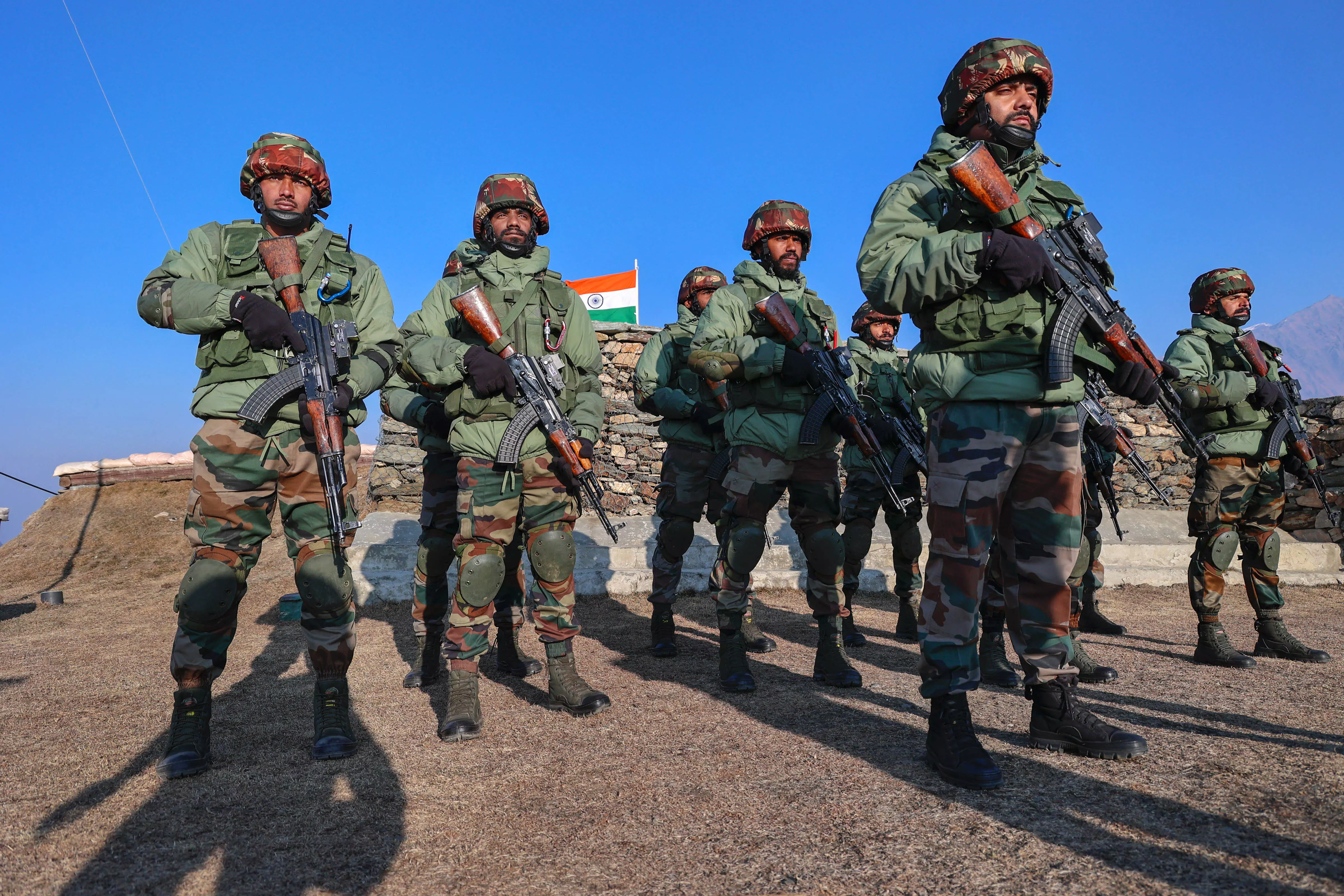Bhopinder Singh | Why the Indian armed forces need to hold the line, at all times

All Indian military personnel, whether they be jawans or officers, swear allegiance only to the Constitution of India, and not to any national leader, party or even government. The sacred oath, “I swear by God that I will safeguard and honour the Constitution”, has remain unchanged, irrespective of many attempts to usurp, appropriate or even degenerate the institution towards partisan ends, by all ruling parties since Independence. It has occasionally been tantamount to misusing the noble doctrine of civilian control over the military, though the leadership and conduct of those in uniform, with the likes of Field Marshal K.M. Cariappa, Gen. K.S. Thimayya, Marshal of the IAF Arjan Singh, Field Marshal S.H.F.J. Manekshaw and others have invariably steered the institution towards its constitutionalist anchorage.
Many from the uniformed fraternity have subsequently transitioned to the political realm – such as Maj. Jaswant Singh, Squadron Leader Rajesh Pilot, Maj. Gen. B.C. Khanduri, etc -- and yet each conducted their successful politics without invoking their “foundational calling” or suggesting any institutional preference towards any ideological or partisan flag. It is to their credit, that irrespective of their personal partisan choices, they refrained from affixing or extrapolating partisanship to the constitutionally apolitical institution.
There have indeed been some cases of individual derelictions but by and large the Indian armed forces were spared the societal passions, morass and “divides” that could diminish the dignity and efficacy of the “sword arm of the nation” that was proudly inclusive, secular and non-discriminatory. In a politically charged environment, where politicians harbour scant respect for this sort of institutionalised restraint, rectitude and “distance”, the armed forces must stand ramrod straight as the custodians of constitutionalist traditions -- they simply cannot allow an unwarranted agenda or express opinions on matters (however pressing and resonating in civil society) that are best handled outside of the Army cantonments. It is for a good reason that politics, partisanship, or even covertly political topics are amongst the most discouraged topics of conversations amongst armed forces personnel.
Sadly, of late we have seen an unusual access, “un-restraining” or “civilising” (in a non-military context) of the tradition-bound institution which did proudly bear its own quirks of regimentations and service norms that may have seemed anachronic or even dated to those outside. Importantly, these traditions were rooted in history (even if it were to be colonial), were charming, and brought incalculable elan and uniqueness to the institution which stood in good stead, whenever the armed forces were put to the test.
Yet, it remained the most progressive, transformational, and forward-looking institution, without succumbing to “divisiveness”, as is the wont of India’s civil society. So, while the civil-political realm debates and devises the new policies (howsoever contentious), the armed forces typically retained a deliberate “distance” from expressing any opinion on matters that were beyond its remit, cultural ethos, and naturality.
It is with this backdrop that the strange move by the Army authorities in Jammu and Kashmir to host a seminar on “Navigating legal frontiers: Understanding Indian Penal Code 2023 and the quest for a Uniform Civil Code” made for some disconcerting optics. Thankfully, better sense eventually prevailed, and the event got cancelled, presumably owing to the well-meant backlash from commentators, veterans and even state politicians who were concerned about the unwarranted initiative (from the military’s perspective) that has already divided the country on partisan lines. There are many serious issues in the country that could
also involve the families of serving personnel of the armed forces -- such as the farmers protests, the Manipur riots, the protests over reservations, but it is not befitting of the institution to be seen to have an institutional view on these issues, owing to a combination of constitutional wiring, historical precedence and simple good sense that has withstood the test of time. To be seen debating issues like Uniform Civil Code by the armed forces is playing with fire. The hard line between politics and the armed forces must not get blurred.
There are many social outreach programmes that the Army joins in the restive Kashmir Valley, but none of these have (or should have) any semblance of partisan angularity. Such healing outreaches by the Army are usually welcome by ordinary citizens who are caught between various forces -- from unhinged politicians or even across the border -- but that is not the same as discussing the merits or demerits of, say, the Uniform Civil Code by serving military personnel. Ultimately, whatever decision is taken by the political system and ratified as per constitutional means will be adhered to by the armed forces, whatever be the personal views of the armed forces personnel.
It is with this acute sense of responsibility that the seniormost officer in the US armed forces, Chairman of the Joint Chiefs of Staff Gen. Mark Milley, had publicly apologised for his unintentional presence at an event that could be construed as “political”. He had said, “I should not have been there”, and later clarified that “my presence in that moment and in that environment created a perception of the military being involved in domestic politics”. He went on to insist: “We who wear the cloth of our nation come from the people of our nation, and we must hold dear the principle of an apolitical military that is so deeply rooted in the very essence of our republic”. The same thing holds true for all personnel of India’s armed forces.

